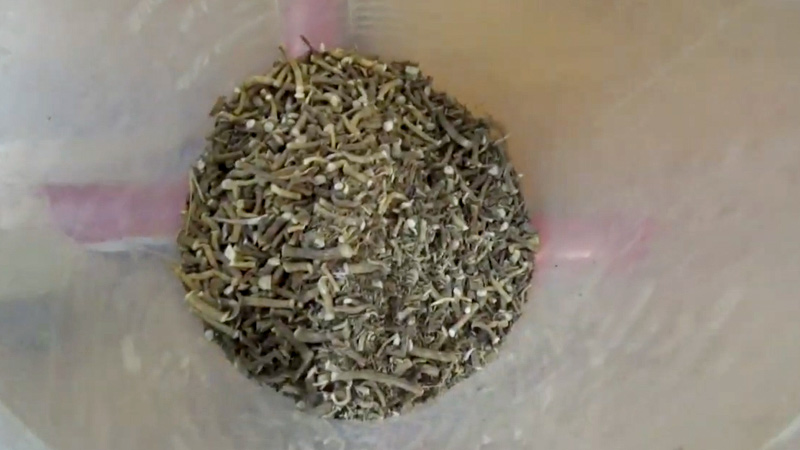
Valerian root, an ancient herbal remedy, has captivated health enthusiasts for centuries with its remarkable potential.
Native to Europe and Asia, this plant is renowned for its soothing properties, particularly in promoting restful sleep and alleviating anxiety.
As modern research continues to unveil the benefits of valerian root, it’s becoming clear that this humble herb may hold the key to improving overall well-being.
Recent studies suggest that valerian root can enhance sleep quality, reduce anxiety symptoms, and even support those facing hyperactivity.
While more research is needed to fully understand its myriad effects, the existing evidence paints a promising picture.
From helping individuals find peace during stressful moments to aiding in the quest for a good night’s sleep, valerian root offers a natural solution worth exploring.
Let’s delve into the six health benefits that make this herb a compelling addition to anyone’s wellness routine.
1. Naturally Promotes Better Sleep
Valerian root is recognized for its ability to enhance sleep quality. Studies indicate that it can significantly reduce the time it takes to fall asleep.
In fact, a double-blind study from Foellinge Health Center in Sweden revealed that 44 percent of participants experienced perfect sleep while 89 percent reported improvements in sleep patterns.
Also, valerian root contains linarin, a chemical linked to sedative effects. Increased levels of gamma-aminobutyric acid (GABA) in the brain contribute to its calming ability, making it a helpful option for those struggling with sleep disruptions.
By supporting restful nights, valerian root plays a vital role in fostering overall well-being.
2. Reduces Anxiety
Valerian root is known for its calming effects, making it an effective natural remedy for anxiety. Research indicates that valerenic acid in valerian root boosts GABA levels in the brain, similar to how medications like Xanax and Valium operate.
This increase can lead to a significant reduction in anxiety symptoms. In a 2011 study, 31 adults with obsessive-compulsive disorder (OCD) took 765 mg of valerian extract daily for eight weeks.
Participants exhibited a noticeable decrease in OCD behaviors compared to those given a placebo. While more research is needed, valerian root shows promising potential as a safe alternative for anxiety relief.
3. May Assist in Lowering Blood Pressure
Valerian root might provide an effective natural approach to reducing blood pressure. Studies indicate that it can help maintain blood pressure at a healthy level, which is vital for heart health.
This herbal remedy contains active components that regulate blood pressure, reducing the risks associated with high blood pressure, like stroke and heart attack.
Research suggests that consistent use of valerian root supplements contributes positively to cardiovascular well-being, highlighting its benefits for those managing stress or anxiety, which often elevate blood pressure.
4. Eases Menstrual Cramps
Valerian root can offer significant relief for menstrual cramps. It acts as a natural sedative and antispasmodic, effectively calming painful muscle contractions.
Studies reveal that valerian root reduces the severity of cramps, enhancing comfort during menstruation. Research conducted at Islamic Azad University in Iran indicates that it can ease the intense uterine contractions many women experience.
Women suffering from premenstrual syndrome have noted improvements in symptoms like muscle pain and breast tenderness when using valerian root. This herbal remedy may serve as a valuable alternative to over-the-counter medications.
5. Enhances Stress Management
Valerian root is a powerful ally in managing stress. It effectively reduces both physical and psychological stress by promoting higher levels of serotonin, a neurotransmitter crucial for mood regulation.
By enhancing GABA levels, valerian root helps the mind and body to relax more efficiently. Also, chronic stress affects numerous aspects of health, including sleep quality and immune function.
Valerian root addresses these issues by maintaining lower cortisol levels, supporting overall well-being. With regular use, it can be a natural means to improve stress resilience and improve quality of life.
6. Potentially Combats Breast Cancer
Research suggests valeric acid in valerian root may inhibit breast cancer cell growth. A 2021 study published in Scientific Reports found that valerian extract significantly decreased breast cancer cell proliferation.
Studies indicate valeric acid plays a role in reducing cancer cell migration, which is crucial for tumor formation.
In exploring colony formation, researchers noted a correlation between valeric acid and decreased cancer cell colonies.
While more evidence is needed, these findings highlight valerian root’s potential as an adjunctive treatment in cancer care.
Integrating valerian root into a health regimen could offer promising benefits for individuals concerned about breast cancer.
Health Risks of Taking Valerian Root
While valerian root is commonly used for its calming and sleep-enhancing effects, it may present certain health risks for some individuals.
Here are some potential risks to be aware of:
Sedation and Drowsiness
Valerian root can cause excessive drowsiness, especially if taken in combination with other sedatives or alcohol. It can impair your ability to concentrate or operate machinery, so it’s advisable to avoid activities requiring full alertness after taking it.
Digestive Issues
Some people may experience gastrointestinal problems, such as nausea, upset stomach, or diarrhea, when using valerian root.
Headaches and Dizziness
In some cases, valerian root can cause headaches, dizziness, or lightheadedness, particularly when used in large doses.
Risk of Overdose
Taking excessive amounts of valerian root may lead to more severe side effects, including confusion, restlessness, and an irregular heartbeat. It’s important to follow the recommended dosage.
Interaction with Medications
Valerian root may interact with certain medications, such as antidepressants, anti-anxiety medications, sedatives, and sleep aids, leading to increased sedative effects or unwanted side effects.
Not Suitable for Pregnant or Breastfeeding Women
The safety of valerian root during pregnancy or while breastfeeding has not been well established, so it’s best to avoid it in these situations unless prescribed by a healthcare provider.
Liver Health
Although rare, there have been reports of liver damage associated with valerian root. If you have liver disease or are taking medications that affect liver function, consult a healthcare provider before using valerian root.
